
With no one at the school to let her in and no idea what else to do, Madison heads back home. She is getting colder, her fingers and toes are burning and painful from the cold now and she is getting very upset. She is also going to have to explain to her parents about locking herself out when they get home.
“Assuming I’m not frozen to death by then,” Madison mutters miserably.
She retraces her steps, the walk feeling a lot longer this time, and stops when she reaches Mr. Hooper’s house.
Caesar!
“I forgot about Caesar,” she groans, “I have to go past him again.”
The thought of having to go past the dog makes her whole body ache with dread, her muscles unwilling to go on even though she knows it’s the only way. It will take too long to go the long way around and she is frozen.
“Come on Madison, you can do this. It’s only a dog and he’s on a chain that doesn’t even reach past the edge of the yard. Yeah, only a big mean dog that’ll probably tear you apart and eat you.”
Madison loves dogs, but this one is scary, mean, and large.
She stares at the house and yard, willing the dog to not be outside or that Mr. Hooper comes out and controls that nasty dog.
“Mr. Hooper is as scary as the dog is. Maybe I am better off trying to sneak past the dog.”
She jumps when the dog pops his head around the side of the house with one loud woof, staring at her from the backyard.
Madison swallows, trying to control her fear. The dog is only standing there watching her so far.
“His chain doesn’t reach the road, so walking by should be safe, right?” It doesn’t feel safe.
“Okay Madison, let’s go,” Madison urges herself on.
She takes a first cautious step.
The dog just watches.
She takes two more steps, almost reaching the point where she would be even with the curb in front of the house.
The dog moves, shifting position but not taking a step, and she imagines him coiling to spring at her.
“Just do it Madison,” she mutters, “just go. Don’t even look at him and just walk right past the house.”
A few more steps and Madison is passing front yard, keeping to the far side of the little road, as far away from Old Man Hooper’s house as she can without climbing over the fence on the other side. Every muscle is stiff and tense.
Caesar just stands there watching her very intently.
“Very hungrily,” she thinks.
When Madison reaches not quite halfway past the back yard, the dog suddenly launches himself at her with a deep growl that becomes a barrage of loud angry barking, bounding after her with powerful strides.
Madison screams and whirls to face the lunging dog, putting her arms up to protect herself from the attack.
The back door of Mr. Hooper’s house flies open with a bang and the old man comes barrelling down the stairs on legs that are little more than sticks covered by loose pants. He is wearing a stained white undershirt with a hole in it and an unbuttoned plaid flannel shirt that is also stained and torn. Madison suspects the brown-red stains are the blood of his and Caesar’s victims from cutting them up in his basement to bury them or feed them to Caesar. His wild eyes, unkempt hair, and grey patchy chin stubble make him look more frightening and wild, like a backwoods crazy man.
Fists clenched, he raises one and shakes it at her threateningly, the other gripping what Madison suspects is some kind of weapon to knock her senseless with so he can feed her to the dog.
“You quit teasing my dog!” he shouts at her. “Get outta my yard! Get outta here and leave my dog alone! You kids are always teasing my dog!”
Caesar reaches the end of his chain and Madison is relieved to see the chain holding strong. With the chain taught, still pulling and lunging at her, Caesar’s jaws snap as if he is already chewing on her while he continues to bark ferociously.
“I’m not even in his yard,” Madison thinks. With a scared whimper, she scurries off towards the back lane, putting Mr. Hooper’s house and Caesar behind her as quickly as she can. The moment she reaches the corner where the little road meets the back lane, Madison breaks into a run.
Behind her, Caesar is still barking after her and she can hear the old man yelling and muttering.
Madison is still shaken by the confrontation when she reaches the fence with the loose board. She looks up at the fence, picturing for just a moment Caesar breaking his chain and coming after her, pinning her helplessly against the fence while he tears her apart, tearing first through her coat to get to her skin beneath. She sees its height as an impossible barrier, and then almost panics when she doesn’t find the loose board right away.
“Okay Madison, calm down,” she tries to sooth herself.
Fingers numb with the cold and her toes like numb blocks filled with a distant sharp pain that are there weighing her legs down but somehow detached, not a part of her, Madison tries again, looking for the notch in the board and counting the boards.
Her fingers will not work when she tries to move the board. Madison pulls her mitts off and blows hot air on her fingers, putting them in her mouth and sucking on them to try to warm them up. It only makes the pain in her frozen fingers worse. Putting her mitts back on, she tries again and this time moves the board.
Madison starts squeezing through the board when she hears the sounds of footsteps and heavy breathing behind her, and then the jingle of a dog’s chain.
“That heavy breathing is definitely a dog panting,” she thinks. “Caesar! He got loose!” Terror grips her and she squeezes frantically through the fence, almost falling through on the other side.
She turns as she lets the board fall back into place just in time to see a woman jogging up the alley with a big fluffy white dog.
Madison leans against the fence and lets out a nervous giggle. “It wasn’t Caesar,” she says in relief.
She walks the rest of the way home, each step seeming to take her farther away instead of closer. The pain in her frozen fingers and toes is getting worse. She tries walking faster, and it makes the pain in her feet worse but at least she should get home faster. Her nose is burning too now and she walks holding her mitts to her face, blocking the cold and warming her face with her own breath cupped beneath the mitts. She leaves only a crack to see through between her mitts.
“Will I ever get home?” she moans in despair.
When Madison finally gets home, she is so cold that her hands and feet hurt so much she is crying. She still can’t get in, though, because she lost her key and locked herself out. Madison sits on the steps and just cries.
“Are you okay?”
She looks up, startled, to see the woman who lives next door.
“I locked myself out,” Madison sobs.
“You look frozen!” the woman exclaims sympathetically. “Come inside my house to warm up and we’ll watch for your parents to come home.”
Madison gratefully goes with her.
Inside the neighbor’s house, she is given a warm blanket and a cup of hot cocoa. Her fingers are too frozen at first to hold the cup. She sits there, rubbing her hands together, trying to warm them. When her fingers and toes start to warm up the pain is terrible. Frostbite had been setting in. She has to wait for the pain in her fingers to lessen before she dares try picking up the cup of hot cocoa. She sits there drinking it thankfully and watching a television show that is way too young for her that the neighbor put on to entertain her.
A few hours later, Madison’s mother arrives home.
The neighbor notices the car in the driveway. “Someone is home at your house.”
Madison looks up at her with fear in her eyes.
“I’m going to be in trouble for locking myself out,” she thinks. “Worse, my parents are not going to trust me to be home alone now.”
“Do you want me to go with you?” the neighbour asks sympathetically, seeing her fear.
“No, I can manage,” Madison says unhappily. Her mind is working, thinking through what she will say to her parents. She gets up reluctantly.
“Thank you for letting me wait here, and for the hot cocoa,” she says as she pulls on her coat and boots at the door. She waves goodbye as the woman closes the door behind her.
Madison trudges home reluctantly. “I’m going to be in so much trouble,” she thinks again miserably. “They’ll make me go to a babysitter now. I’m too old for babysitters.” She opens the front door to find her mother frantically searching the house and calling her.
Hearing the sound of the front door and the thud of Madison’s boot dropping on the floor, her mother rushes to the door.
“Where have you been?” Her voice is as anxious and harsh with worry as the expression on her face.
Madison shifts nervously, standing there with one boot on and one off, her coat open, and hat and mitts dropped carelessly on the floor with her backpack.
She looks down at the floor, not wanting to meet her mother’s eyes.
“I lost my key,” she mumbles quietly.
“What? Look up at me when you speak. What did you say?”
Madison huffs in frustration, not wanting to repeat herself. She looks up at her mother, her mother’s worried look making her want to hide.
“I got locked out.”
“How? Where is your key?” She advances on Madison. “Take your jacket off, give me your backpack. Where is your key, Madison?”
Madison lets her mother take the offending backpack. She takes off her other boot and jacket while her mother searches the backpack.
“I don’t know. I got home and I couldn’t find my key.” Her voice is cracking and sounds small, making her sound years younger.
She stands there watching her mother pull stuff out of her backpack, shaking them out and finally dumping the rest of the contents on the floor in a mess.
“So where were you?”
“I was next door.” Madison decides not to tell her that she walked all the way back to school and then home again before finally ending up next door.
The front door opens behind Madison and her father walks in.
“What’s all this?” he asks, looking down at the mess scattered on the floor and at his wife rifling through Madison’s backpack.
“Madison locked herself out. She lost her key.” Madison’s mother doesn’t pause in her search of the backpack and its contents.
Her father takes his shoes and coat off, hanging up his coat, and gives Madison a disappointed look.
That look makes a red flush burn her cheeks. She would have preferred anger to his disappointment.
He shakes his head. “Did you check her backpack and coat?”
Her mother looks up at him with an annoyed look.
He picks up Madison’s coat from the floor and searches the pockets, feeling along the bottom hem in case it somehow slipped through a hole in the pocket into the inner lining.
Madison just watches. There are no holes in her pockets.
“How did you lock yourself out?” her father asks while he searches the coat. “This was a pretty big responsibility we trusted you with. I guess you just aren’t ready for it.”
“There is no key,” her mother exclaims, dropping the violated backpack on the floor. “I guess we were wrong. You just aren’t responsible enough yet.”
She turns and heads for the kitchen.
“Mom, I am. I’m twelve,” Madison begs, following her. “What are you going to do?” She has a pretty good idea what her mother is going to do and she is mortified at the idea.
“Mom, no, please, I’m too old for babysitters.”
Her mother picks up the phone and digs her little phone book out, turning on Madison. “What if the neighbour wasn’t home? Where would you have gone? It’s too cold out; you could have froze or had frostbite.”
Madison blushes at the memory of her freezing walk and the pain of frostbite in her fingers and toes.
“I’m finding you a babysitter.” Her mother starts flipping through the little phone book.
“Mom, please,” Madison begs, fighting the tears she can’t stop. Twelve is too old to go to daycare or a babysitter. Too old to cry. How can she show them she’s old enough if she cries like a baby?
“You just aren’t ready yet for the responsibility of getting yourself to school and home,” her father says, entering the kitchen and pacing angrily.
The tension in the air between them all is heavy. Madison watches helplessly as her mother is determined to find a babysitter and her father continues pacing angrily and scolding her and complaining about the locked door. She doesn’t even hear his words anymore, seeing only the teasing and taunting at school when the other kids learn she’s going to a babysitter.
Madison looks at her father, usually her biggest ally when her mother is set on something and is being unreasonable. She has no ally there now. Madison isn’t sure if he is angry with her, himself, or at the door that kept her from getting into the house.
Madison is mortified. “Babies go to babysitters,” she thinks. “I’m old enough to be home alone. I’ll show them!” Her heart sinks. “But how?”
With no mature options, she resorts to what has always worked in the past. Madison cries and begs them to give her another chance.
This goes on for some time, a battle for who has more stamina. Her mother keeps threatening to send her to a babysitter, her father pacing angrily and lecturing her, and Madison keeps crying and begging for another chance. Finally, her parents wear down first and relent. Madison is given another chance to show that she can handle the responsibility.
THE LATCHKEY KIDS IS AVAILABLE ON KINDLE AND IN PAPERBACK ON AMAZON
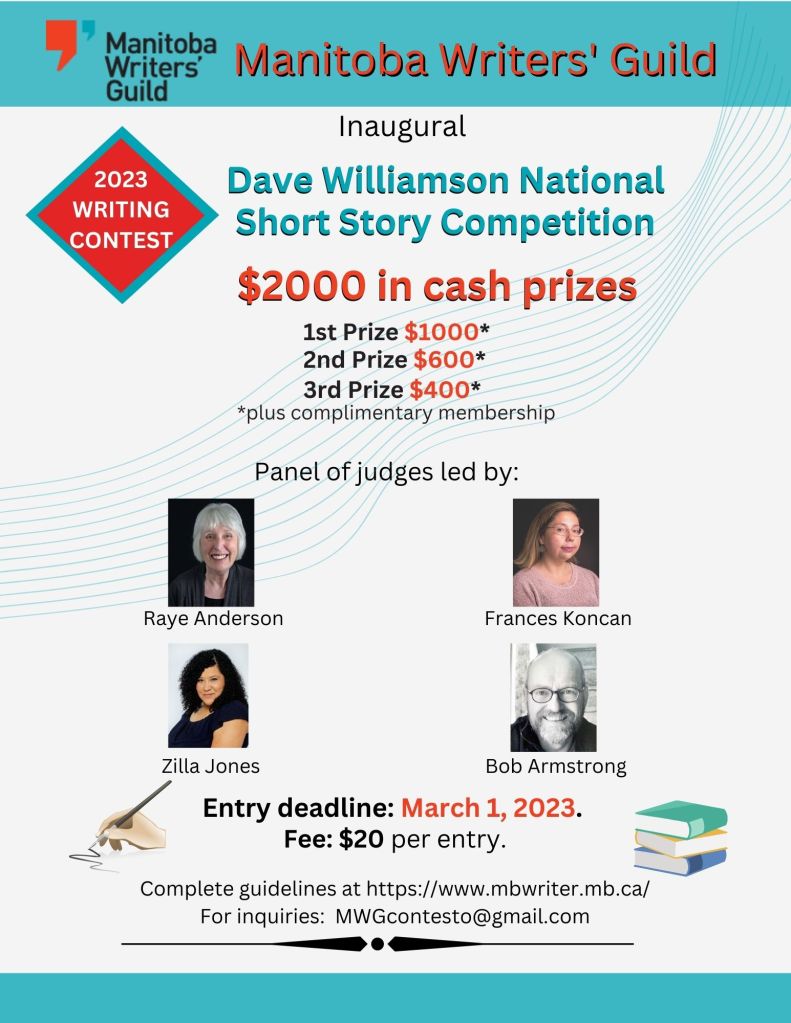

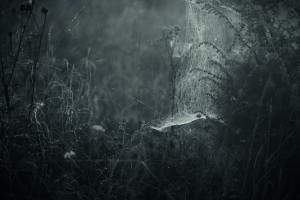

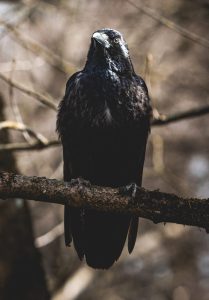
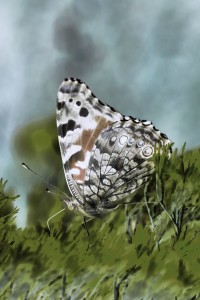
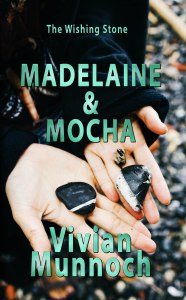
 Vivian Munnoch grew up in Winnipeg, Manitoba and continues to live in Manitoba with her family and rescue dogs. Vivian’s writing has always had a vein of darkness to it.
Vivian Munnoch grew up in Winnipeg, Manitoba and continues to live in Manitoba with her family and rescue dogs. Vivian’s writing has always had a vein of darkness to it.
 The Latchkey Kids (book 1):
The Latchkey Kids (book 1): 